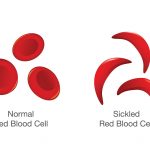Breastfeeding. Everyone seems to have an opinion about who should do it, how long it should be done for, and where it should be allowed.
Some women feel a lack of support in their breastfeeding journeys, and others feel stigmatized when they have chosen not to or been unable to breastfeed.
The seemingly simple subject brings with it a minefield of opinions, which recently became apparent on the world stage as the U.S. sought to oppose a resolution to encourage breastfeeding at the World Health Assembly. Ultimately the resolution was passed.
Benefits
One thing that is not up for debate amongst all of this, is the extensive list of benefits breastfeeding affords.
WHO’s recommendations are that mothers should “exclusively breastfeed infants for the child’s first six months to achieve optimal growth, development and health. Thereafter, they should be given nutritious complementary foods and continue breastfeeding up to the age of two years or beyond.”
Not all women are able to breastfeed their infants, but for those who can, the numerous benefits, for both baby and mother are enormous, and this is why it is so actively encouraged by health organizations.
The 2016 Lancet Breastfeeding Series stated that promoting breastfeeding would save about 820,000 child lives a year – 87 percent of them infants under six months of age. that increasing breastfeeding rates to 90 percent in the U.S.,China, and Brazil and to 45 percent in the U.K. would cut treatment costs of common childhood illness and save at least US$2.45 billion in the U.S., US$29.5 million in the U.K., US$223.6 million in China, and US$6.0 million in Brazil.
Breastfeeding reduces a baby’s risk of:
- bacteremia
- diarrhea
- respiratory tract infection
- necrotizing enterocolitis
- otitis media
- urinary tract infection
- late-onset sepsis in preterm infants
- type 1 and type 2 diabetes
- lymphoma, leukemia, and Hodgkin’s disease
- childhood overweight and obesity
For mothers, breastfeeding both encourages bonding and lowers the risk of some health issues:
- decreased postpartum bleeding and more rapid uterine involution
- decreased menstrual blood loss and increased child spacing (lactational amenorrhea)
- earlier return to pre-pregnancy weight
- decreased risk of breast and ovarian cancers, osteoporosis, cardiovascular disease and obesity
Obstacles
Breastfeeding is not always easy, and while breastfeeding rates may be on the increase, some mothers may decide not to start or continue to breastfeed for a plethora of reasons.
WHO statistics say that globally, only 40 percent of infants under six months of age are exclusively breastfed, while NHS figures say that in the UK, more than 73 percent of mothers start breastfeeding and 17 percent of babies are still being exclusively breastfed at three months. A recent UNICEF report found that more than 1 in 5 babies in high-income countries are never breastfed, compared to 1 in 25 in low- and middle-income countries.
According to the American Academy of Pediatrics, breastfeeding is contraindicated in infants with classic galactosemia; mothers who have active untreated tuberculosis disease or are human T-cell lymphotropic virus type I–or II–positive; mothers who are receiving diagnostic or therapeutic radioactive isotopes or have had exposure to radioactive materials (for as long as there is radioactivity in the milk); mothers who are receiving antimetabolites or chemotherapeutic agents or a small number of other medications until they clear the milk; mothers who are using street drugs; and mothers who have herpes simplex lesions on a breast (infant may feed from the other breast if clear of lesions). In the United States, mothers who are infected with human immunodeficiency virus (HIV) have also been advised not to breastfeed their infants.
Women who do not fall under these contraindications may also decide not to start, or to discontinue breastfeeding due to other reasons. These include misinformation and myths, problems with latching, a negative impact on mental health, worry that baby isn’t getting enough, tongue tie, issues continuing breastfeeding if returning to work, and a lack of support.
Support
Active support through the sometimes-difficult journey of breastfeeding is extremely important, and mothers may require this for establishing and sustaining appropriate breastfeeding practices. This support can both ease a mother into a successful breastfeeding journey, and also overcome many of the issues mentioned above, which may otherwise have caused her to discontinue breastfeeding.
Cayman has a few breastfeeding support groups and services who can be of immense value to new mothers, offering support and advice, or even access to breast pumps at market value. Here are a few options for those looking for information and/or support:
Jacqui Smith wears many hats, being a physical therapist, lactation consultant, Lamaze childbirth educator, Doula and a lactation consultant. Contact her on (345) 949 6024 or (345) 916 8970
Baby Whisperers offers many pre and post-natal classes including doula services, childbirth classes and breastfeeding and post-partum support. Contact Kelly Johnson on (345) 324 1380 for information on which class option is best for your needs or visit the website at babywhisperers.ky.
The Cayman Islands Breastfeeding Support Group is a volunteer organization offering breastfeeding support to the community, including answering questions, offering home and hospital support visits, and selling and renting breast pumps. Visit www.facebook.com/CIBreastfeeding, email [email protected] or call Annie Mae on (345) 916 0132 or (345) 945 1751 for more details.
The HSA runs a series of free classes called Parent Craft, covering Nutrition for Pregnancy, Labour and Delivery, Knowing your Baby, Breast Feeding and Infant CPR. Call the Antenatal Services Department on (345) 244 2649 for the schedule.
CTMH Doctors Hospital also run HELLO BABY – Antenatal Classes, during which OB and pediatricians share their expertise regarding pregnancy, delivery, breastfeeding and early development. Email [email protected].
Resources
For more information on the benefits of breastfeeding or contraindications to breastfeeding, please visit the following sites:
https://www.nhs.uk/conditions/pregnancy-and-baby/benefits-breastfeeding/
https://www.unicef.org.uk/babyfriendly/about/benefits-of-breastfeeding/
https://my.clevelandclinic.org/health/articles/15274-the-benefits-of-breastfeeding-for-baby–for-mom








